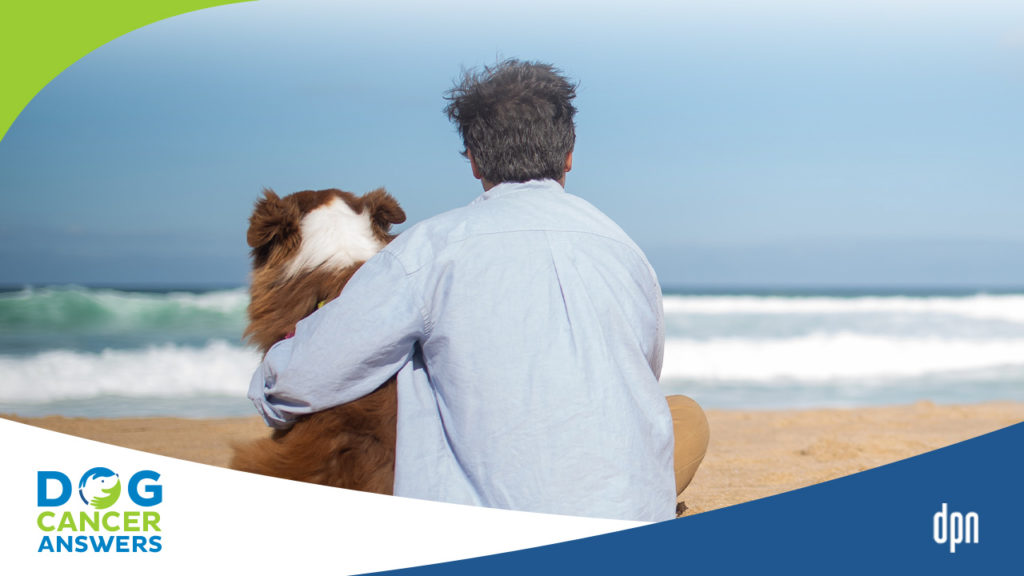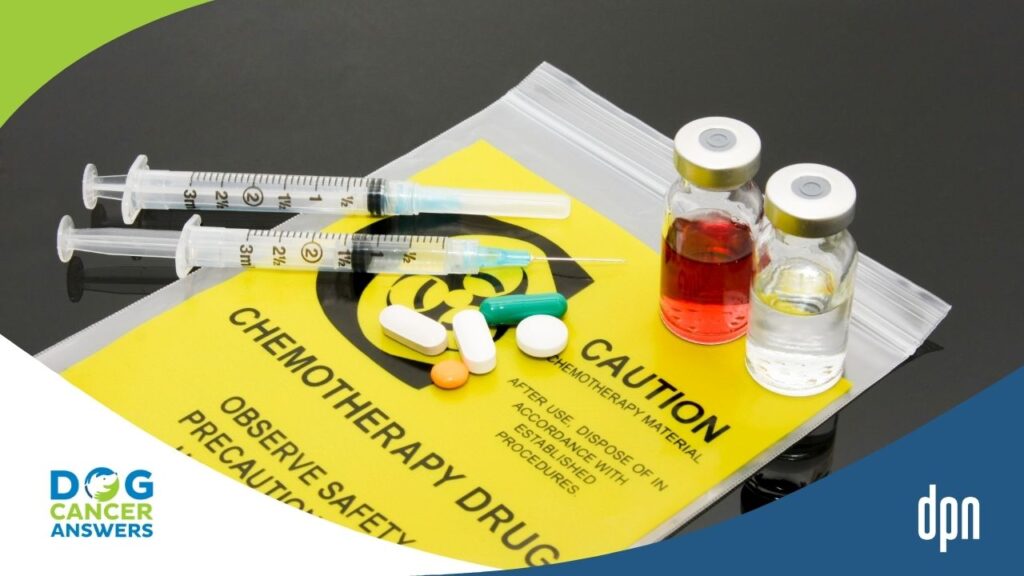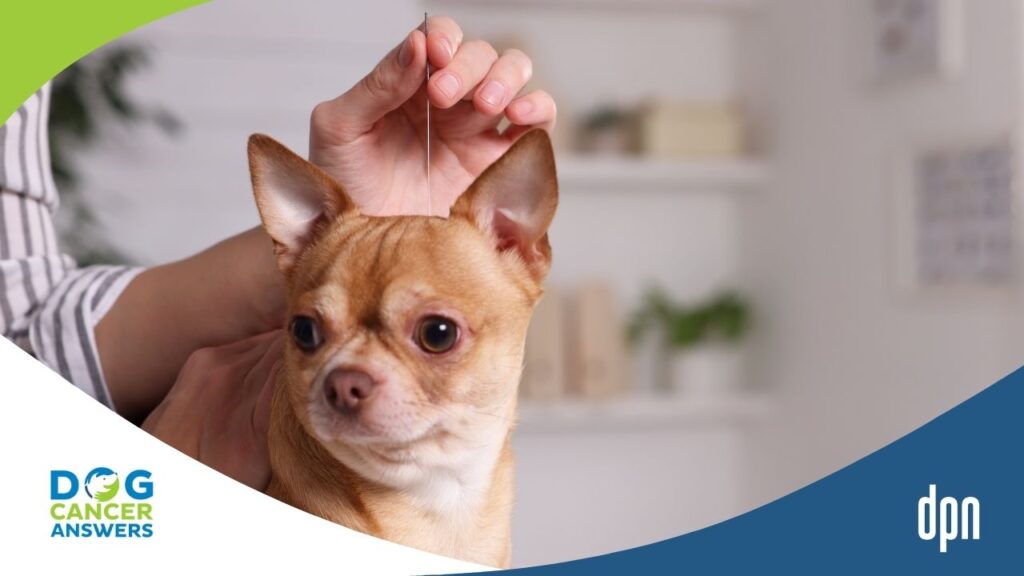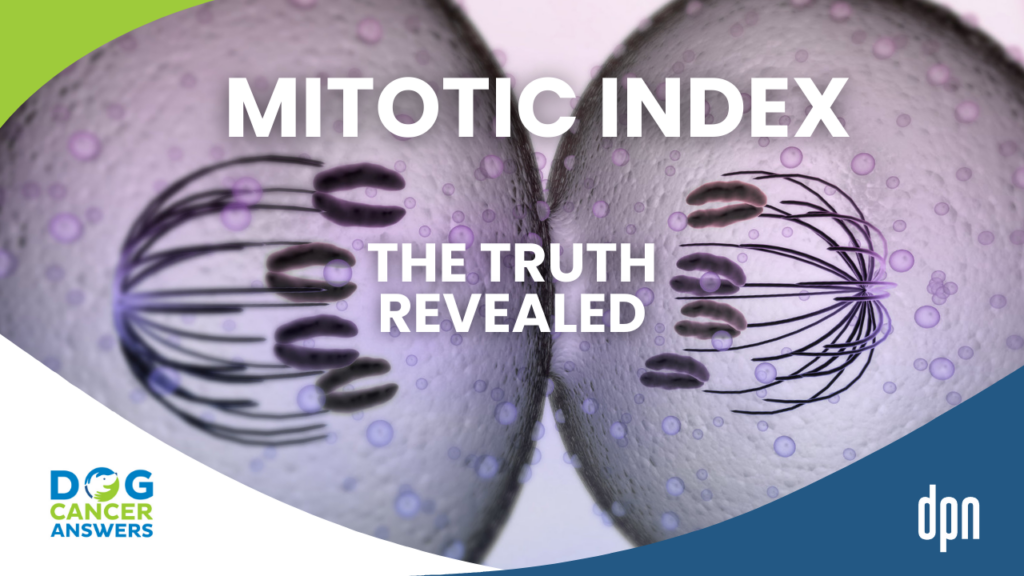EPISODE 76 | RELEASED September 7, 2020
Essential Oils For Dogs: Safety, Uses & How To Find Reputable Brands | Dr. Janet Roark Deep Dive
Like most vets, Dr. Janet Roark didn’t have much faith in essential oils … until she tried them for her own health condition.
SHOW NOTES
Dr. Janet Roark joins us for a Deep Dive on today’s show into the medical benefits of essential oils, safe application, her favorite brands, how to find reputable products, and her hopes for the future of American veterinary medicine’s attitude towards essential oils.
Like most veterinarians, Dr. Roark was initially skeptical of essential oils. Her doubts were nursed by the number of shady products on the market. But when a good essential oil rapidly cured her debilitating headache, her curiosity was piqued. How had voodoo treatments triumphed after months of conventional drugs’ failure? Dr. Roark then dove into the burgeoning medical literature behind essential oils, tried it in her own practice, and was astonished by the results.
Links Mentioned in Today’s Show:
Dr. Roark’s website, The Essential Oil Vet. Includes her story, essential oil shop, and various courses, several of which are FREE https://essentialoilvet.com/about/
Dr. Roark’s Safety Guide for using essential oils on animals https://essentialoilvet.com/safety/
Dr. Roark’s Social Media Accounts https://www.facebook.com/EODVM/ https://www.instagram.com/essentialoilvet/?hl=en
Paper on frankincense, posted on NIH https://www.ncbi.nlm.nih.gov/pmc/articles/PMC3924999/
the Veterinary Medical Aromatherapy Association https://vmaa.vet/
ThunderShirts for calming dogs https://thundershirt.com/
About GCMS testing for finding reputable essential oils https://www.acs.org/content/acs/en/education/whatischemistry/landmarks/gas-chromatography-mass-spectrometry.html
The Dog Cancer Survival Guide: Full Spectrum Treatments to Optimize Your Dog’s Life Quality and Longevity by Dr. Demian Dressler and Dr. Susan Ettinger.
>> James Jacobson: This Dog Podcast Network show is brought to you in part by BarkBox. As a DPN listener, you’ll get a free month with a multi-month subscription when you use our link. Go to barkbox.com/dpn. Additional support is provided by EverPup the ultimate daily dog supplement. Because every dog deserves to live a long and healthy life. Details at everpup.com.
>> Dr. Janet Roark: And I just like case after case, just kept happening. And are all of ’em that dramatic and amazing? No. But I do know that essential oils will make them feel better, and in some cases we have some pretty dramatic results.
>> Announcer: Welcome to Dog Cancer Answers where we help you help your dog with cancer. Here’s your host, James Jacobson.
>> James Jacobson: Hi friend. Welcome to today’s episode on Essential Oils for Your Dog. They are everywhere these days, with names like Wild Orange and Calming Lavender and Sacred Frankincense. Aromatic essential oils can be found in corner drugstores, small gift boutiques, specialty online shops, and now at some veterinary offices.
>> James Jacobson: So how aromatherapy oils be used to help treat your dog, especially if your dog has cancer? Are there real therapeutic benefits for your dog? And what about the fact that dogs who have notoriously good noses have such an amazingly amplified sense of smell? Are these essential oils safe? Are they in fact essential?
>> James Jacobson: To address these questions, we welcome Dr. Janet Roark to the show. She graduated from Michigan State University College of Veterinary Medicine in 2005 and currently owns Hill Country Mobile Veterinary Service in Austin, Texas. Dr. Roark has become a passionate practitioner of essential oils with her patients and has been quoted in various publications.
>> James Jacobson: Today we’ll discuss with Dr. Roark the medical benefits, which particular oils she uses in her practice, safe methods for application, and finding reputable brands. Dr. Roark, thank you for being with us today.
>> Dr. Janet Roark: Thank you so much for having me. I just am so excited about today.
>> James Jacobson: So let’s first of all start off with what is an essential oil?
>> Dr. Janet Roark: An essential oil is a volatile aromatic compound. So basically what that means is that at room temperature, it evaporates quickly. When you smell an essential oil, you can smell it at room temperature because it’s evaporating and it’s also lipophilic, which means it love. Lipids are fat, which means you can apply it topically so on your skin or on your dog’s skin, and it’ll absorb into the skin, into the bloodstream very, very quickly so you get a really quick therapeutic benefit from them.
>> James Jacobson: And how quickly does it actually get into the body?
>> Dr. Janet Roark: Usually within a couple of minutes, and you can see systemic responses within 15 to 30 minutes.
>> James Jacobson: Let’s talk a little bit about the therapeutic benefits. What are some of the reasons one would want to use essential oils with their dog?
>> Dr. Janet Roark: There are so many, but it is basically you can have physical benefits from essential oils, emotional benefits, because of the way that they’re inhaled. It actually goes straight to the brain through the limbic system, is very, very closely associated with emotion and memory.
>> James Jacobson: So let’s talk about the physical benefits, ‘ cause those are the most, I presume, tangible, right?
>> Dr. Janet Roark: Right. So those are the ones that you can see. So we have oils that can support a healthy inflammatory response. We have oils that can support the nervous system, the various different physical systems, like we have oils that support the heart and cardiovascular system. We have oils that can help with bruising and with the respiratory system and open up the airways. We have oils that can help with pain and inflammation and certainly on a cellular level when we’re talking about, you know, dogs with cancer.
>> Dr. Janet Roark: We have oils that can help with regeneration and a healthy cellular response even affecting down to the DNA of certain cells.
>> James Jacobson: Before you were a vet, were you using essential oils or did you come to that after you got your DVM?
>> Dr. Janet Roark: I didn’t use essential oils. I thought they were voodoo medicine, just like probably many of my colleagues do already right now. But what happened was I had horrible headaches. I was suffering from depression. I was suicidal, and I, I was talking to my friend about it and she was like, you know, essential oils can help with some of that. And I was like, sure, okay. But I was kind of desperate. So, you know, kind of like a lot of your listeners, you get to a point where you’re just like, I’m desperate. I need to try something else.
>> Dr. Janet Roark: This stuff isn’t working, what I’m using right now. And I was seeing a very good neurologist and she put me on a bunch of different medications, which helped a little for covering up the symptoms, but they didn’t actually treat the problem. So I went to dinner with my friend and she’s like, try these essential oils.
>> Dr. Janet Roark: And didn’t really think much of ’em until I ran out of my headache medicine one day and I was like, oh my gosh, what am I gonna do? And I saw my little bottle of essential oil and I was like, what the heck? And I put like a drop on my temples and on the back of my neck, kind of like across, you know, the spine. And within 15 minutes, I kid you not, my headache was totally gone.
>> Dr. Janet Roark: And this was at a point in my life where I was getting these every single day. They were horrible. They were debilitating, you know, sound, light, the whole thing. It really triggered them. And so I put it on, I didn’t refill my medication and the next day I put it on again, and then I didn’t get a headache for like two weeks. And then I put it on again, and then I didn’t get a headache for like a month. And I was just like, what is even happening? My body is reacting to these like, essential oils totally different than with the medication I was taking.
>> James Jacobson: So that changed your perspective.
>> Dr. Janet Roark: That triggered my curiosity quite a bit. And I’m super dorky, so I went to PubMed. So I went to all the research articles and that’s where I started reading research article after research article about how these essential oils are effective? How they work? Why they work? And I just went on this like six month journey of a deep dive into the research. Was fascinated by what I read, and then about that time I had a client who had a horse that had, um, chronic sinusitis.
>> Dr. Janet Roark: So we had him on antibiotics probably every three to four months, whenever it kind of flared up. And I’m like, well, I’ve been researching these essential oils and we can try ’em. And if it doesn’t work, you know, we can always put ’em in antibiotics tomorrow. No big deal. So I was doing this session on him and I was just applying him topically. And then when I looked down at the end of the session, there was like a puddle of mucus on the ground that was like a foot wide. And I’m just like, all this snot had just like come out of his nose.
>> Dr. Janet Roark: And I was like, that is disgusting, but also super awesome. And I called the owner back the next day. I was like, how’s he doing? And then she was like, Oh my gosh. It’s totally better. We don’t have to put him on antibiotics because whatever was going on with his body, the essential oils helped to his body to get back to normal. And that’s kind of what I like to think of essential oils is doing, is helping the body heal itself.
>> James Jacobson: Okay. Let’s unpack all that. What are essential oils made from?
>> Dr. Janet Roark: So essential oils are from plants. So different parts of plants, whether it’s the seeds, the stems, the leaves, flowers, fruit, roots, depending on the plant. And they all have very different therapeutic benefits.
>> James Jacobson: We all know the dogs have an incredible sense of smell. Way better than us. Well, I’ll ask you, doctor, how much better can a dog detect smells than a human?
>> Dr. Janet Roark: Well, okay, so it’s an approximation, ’cause we don’t know for sure, but it is, we’d say that like, uh, humans have about five to 6 million olfactory receptors and dogs have about 300 million. So that’s when people get into a little bit of trouble when they’re diffusing too much. It can be a little overpowering for an animal, but they’re like, well, I don’t smell it that much because we get a little nose blind to things. So I always tell people when they’re diffusing, start with three to four drops in your diffuser.
>> James Jacobson: Okay. So not too intense. So let’s talk about this third way of introducing these essential oils to a dog that you said was somewhat controversial, which is ingesting it.
>> Dr. Janet Roark: Yeah, so I actually use this quite a bit with other brand of oils that I use. The company I use test the oils more than 54 times per batch of essential oils so you know, you are actually getting what you say you’re getting. But if you think about it, a lot of the essential oils, like turmeric we were talking about, so turmeric is safe for ingestion, right? Like the herb. Little spicy. Ginger, same thing. So the essential oil version of that, if you’re using just essential oil and it doesn’t have any synthetics in it, it is safe for ingestion.
>> Dr. Janet Roark: You just have to be a little bit careful. Again, it’s very potent, so you only wanna use one drop at a time.
>> James Jacobson: You were saying there are things like inflammation, cardiac health, things like that. So is specific to cancer, which is what most of our listeners are concerned with, what are some oils and some physical benefits that you would see from those essential oils?
>> Dr. Janet Roark: Yeah, so cancer is a really, really big, broad term about that really just means the cells are mutating in a way that we don’t want them to, and there’s a lot of different types of cancer that affect various systems.
>> Dr. Janet Roark: And so when we talk about essential oils and using them in those cases, you’re really going to be, a lot of times addressing whatever’s going on with the system as a symptomatic type of approach, but also in general to help keep the animal more comfortable, help decrease inflammation, decrease pain, increase analgesia or like, you know, just comfort in general of the animal. So in these dogs with cancer that are not super, maybe they don’t want to eat, maybe they’re having some trouble getting pills into them or things like that.
>> Dr. Janet Roark: It’s a really viable kind of option to use to help them in really tough cases. So oils like turmeric, for example, most people are very familiar with turmeric as an herb. From an herbal standpoint, turmeric is not incredibly bioavailable. Only a certain amount gets to the cellular level, but it has like the same kind of effects that you would think, Oh, my animal’s gonna be taking the herb turmeric because I want X, Y, and Z to happen. You know, it helps with inflammation and it helps prevent maybe the metastasis of cancer and some of those other things potentially.
>> Dr. Janet Roark: And the oil does the same thing, except it’s just you only need one drop. The essential oil is very bioavailable, and if your animal doesn’t take it internally, you can always apply it topically and still get a really good benefit.
>> James Jacobson: So it doesn’t really matter where you put it because it’ll go into the system is what you’re saying.
>> Dr. Janet Roark: So either way, there’s a lot of different ways you can apply oils topically. One is directly to the area of concern. So if there is like a lump or a bump or you know, a tumor that you’re trying to address, certainly directly on that. I apply it most frequently along the spine, along the back because that’s where a lot of the nerves are. Animals are used to being pet along their spine, along their back, so it’s more comfortable to them. Some dogs really like their bellies rubbed. You can put it on their belly, the ear tips. Sometimes you can rub it on their gums as long as you don’t get bit
>> James Jacobson: Okay, and I wanna get deep into this, but are there any adverse effects to be watchful for like allergic or I don’t know.
>> Dr. Janet Roark: Essential oils are extremely potent. They’re 50 to 70 times more potent than herbs, so they are very, very strong. And so you don’t wanna overdo it. And I always recommend people dilute when you’re using essential oils topically with a carrier oil like fractionated coconut oil, extra virgin olive oil, almond oil. The main thing you wanna watch out for is skin sensitivity. You know, I don’t want any of your listeners to go out there and take, you know, a bottle of frankincense and dump half of it onto their dog. There can be too much of a good thing when it comes to essential oils.
>> James Jacobson: Okay. So there’s the physical side. You were touching on the emotional earlier. What are some of the emotional benefits of using essential oils?
>> Dr. Janet Roark: When animals are in pain, they don’t understand why they feel pain. And you know, a lot of times dogs will have trouble eating when they have cancer or going through chemo. So essential oils can help overcome that. So they can smell it and it basically bypasses the thinking part of the brain. Goes straight to like the instinct part of the brain. And so you can do a lot with smell with aromatherapy to impact the animals from an emotional standpoint. And so it kinda can stop the cascade when an animal is, say, panicking or they have anxiety about something.
>> Dr. Janet Roark: I have people who have dogs that are terrified of thunder or fireworks, you know, and they’re like, what do I do? And I just have them diffuse a calming oil like lavender, or we have a blend called Peace or Roman Chamomile, some of those really calming smells, and they will sleep through the fireworks or the thunderstorm.
>> James Jacobson: You just put that on so you don’t need like a thunder shirt or something like that. Just literally diffusing that oil will calm the dogs down?
>> Dr. Janet Roark: Some dogs need more. I mean, every animal is an individual, just like every person is an individual. So there are some animals that. need a thunder shirt. And need some of those other things. Then when you add in the essential oils into that piece, sometimes you’ll just like double your benefit.
>> James Jacobson: I like that. Double your benefit. Hey, Dr. Roark um, let’s take a short break right now so we can hear from our sponsor and when we come back we’ll discuss particular oils that you recommend and how to find reputable brands. And also let’s get into how these essential oils are generally perceived by the veterinary community. That and more with Dr. Roark when we get back.
>> James Jacobson: Today’s episode is brought to you by the bestselling book, the Dog Cancer Survival Guide by Doctors Demian Dressler and Sue Ettinger. In a minute, I’ll tell you how to get their book at a discount. This book is considered the bible of dog cancer, and it covers so much information in an easy to understand, easy to reference guide.
>> James Jacobson: For example, the book covers everything that you need to know about conventional veterinary treatments that include surgery, chemotherapy, and radiation, including how to reduce their side effects. It covers the most effective non-conventional options, including botanical nutraceuticals, supplements, nutrition, and mind body medicine, and it also goes into how to analyze the options and develop a specific plan for your own dog based on your dog’s type of cancer and your dog’s age, and your financial budget, and your time constraints, as well as your personality.
>> James Jacobson: The Dog Cancer Survival Guide is available wherever fine books are sold, both online and in physical bookstores. It’s available either as a paperback or as an e-book, and the e-book is under $10. The website to get either the paperback or the e-book is www.dogcancerbook.com. And if you’d like to, you can save 10% if you use the promo code PODCAST when you check out, you’ll save 10%. The website, dogcancerbook.com and use that promo code PODCAST for 10% off. That website again, www.dogcancerbook.com.
>> James Jacobson: And we’re back speaking with Dr. Janet about essential oils. So let’s talk a little bit about oils that you specifically recommend for cancer patients.
>> Dr. Janet Roark: So from a physical standpoint, when we’re talking about dogs with cancer, I always recommend Copaiba. It’s C O P A I B A. So it’s a tree from Brazil and it works on the endocannabinoid system, which you might know of other oils like CBD that works on that system. So that’s a system in the body. And CBD oil works indirectly on that system and Copaiba works directly on those cell receptors because beta caryophyllene is a smaller molecule. And then of course frankincense, everybody knows about frankincense.
>> James Jacobson: Of course it was what the three wise men brought it to fame, right?
>> Dr. Janet Roark: Yeah.
>> James Jacobson: It was, wasn’t it gold, frankincense, and myrrh?
>> Dr. Janet Roark: So frankincense is from the frankincense tree resin. And the way they harvest it is actually they scour the trees and get this resin from them. They actually call them frankincense tears, and they harvest those. It’s like a three day process, and then they sort the frankincense tears and distill them out, and you get this really beautiful, beautiful essential oil that has over 180 chemical constituents in it.
>> Dr. Janet Roark: And so because it has so many different molecules in it, it has a wide array of therapeutic benefits. So we always say, when in doubt, get the frankincense out. So it kind of does a little bit of everything and it’s kind of like a good catchall. But they have actually done a lot of studies on frankincense and its effectiveness against different types of cancer cells. And even in like, animal models in research, they’ve actually shown it to be quite effective at either decreasing tumor size, decreasing metastasis, supporting that animal so that there’s less mutation.
>> James Jacobson: That is good.
>> Dr. Janet Roark: So I was actually using it on my own animals. I had a cat that had epilepsy and we use actually some frankincense with her internally, and instead of having to put her on anti-seizure medications, I just used a drop of frankincense in her food once a day for about, not even that long. It was less than a month, probably like more like a week. And she stopped having seizures completely. And I was like, okay, there’s something to this. And I just like case after case just kept happening.
>> Dr. Janet Roark: And are all of ’em that dramatic and amazing? No. I wish I could save every animal, but they just don’t live as long as us. So sometimes it’s hard and we try the best we can but I do know that essential oils will make them feel better, and in some cases we have some pretty dramatic results like the ones I just talked about.
>> James Jacobson: So you said that brand matters, quality matters. How does one go about finding a good and trusted source for essential oils?
>> Dr. Janet Roark: So most people know there’s a lot of essential oils on the market these days, and I’m gonna say that in quotes, like quote unquote essential oils. Okay. Because there, everyone is kind of jumping on the natural alternative medicine train, so to speak, because you know there’s some money to be had there and so you’re a health food store, you’re a grocery store and get quote unquote essential oils right now.
>> Dr. Janet Roark: But I can guarantee you those are gonna be more like your perfume grade essential oils. They’re gonna say not for ingestion. They’re not gonna be necessarily therapeutic eventhough they might even say organic. They might even say therapeutic on there because it’s not regulated. So the FDA doesn’t regulate certain herbs or essential oils or things like that.
>> Dr. Janet Roark: And so because there’s no regulation, there is a lot out there that’s really not high quality. And those not high quality, quote unquote essential oils are often synthetic. And a lot of those actually have been proven to be endocrine or hormone disrupting, which of course we don’t want with our dogs. You wanna make sure that the essential oil company tests their oils and that you can access those tests.
>> Dr. Janet Roark: If they are not willing to provide those to you, I would seriously question it, and the very minimum they should do is a GCMS test, and that basically tells you what’s in the essential oil from a very basic chemical standpoint.
>> James Jacobson: Is that available like on their website or is that available in the store or the clinic or where would one?
>> Dr. Janet Roark: You should be able to contact the company and be able to get those somehow. Sometimes they’re not on the website. The ones I use, you can access the third party lab. So a third party lab actually tests their stuff and you can actually access those online and review those and see what the chemical makeup is of that oil and making sure that it’s, you know, the therapeutic level of stuff that you want.
>> Dr. Janet Roark: That’s pretty advanced aromatherapy training stuff. But at the very minimum, they should have that available and be transparent about what’s in their stuff. If it doesn’t have that, I would question it. If it’s an oil like a citrus oil and it says specifically on there not for internal use, I would seriously question that so, ’cause citrus oils are, you know, ingestible.
>> James Jacobson: What is the average cost for an oil, or does it vary based on the oil and obviously the company?
>> Dr. Janet Roark: So it’s depends on the oil for sure. Like for example, lavender is pretty abundant. It doesn’t take as much plant material to make a bottle of lavender as it does to make a bottle of frankincense, for example. So lavender, you could probably get for $25 or so. Frankincense is gonna be one of your more expensive oils. That one should run about, you know, 60 to $90 is pretty typical for frankincense.
>> James Jacobson: How many ounces, or?
>> Dr. Janet Roark: I’m talking about like 15 milliliter bottles.
>> James Jacobson: So it ranges the gamut and there is so much to learn. When you talk to your colleagues at vet conferences and places like that and they express a high degree of skepticism, how do you respond?
>> Dr. Janet Roark: There are quite a few of us that use essential oils, aromatically, topically and internally. Again, brand matters on that stuff, but there are a whole lot of veterinarians that think anything alternative is not true medicine and probably think I’m crazy. I also do acupuncture. Not everybody is into acupuncture, but the veterinarian community is starting to get more on board with that after how many years has it taken?
>> Dr. Janet Roark: I mean, acupuncture’s been around for 3000, so I think it’s just a matter of time and as we get more education out there and I’m trying to educate more and more people, I think that’s gonna make a big difference. But a lot of it is veterinarians don’t have time to do six months of research on things.
>> James Jacobson: You touched on this when you were saying that acupuncture’s 3000 years old, and obviously that’s from traditional Chinese medicine, is this type of treatment used internationally, like the French for example? I always think of them as being very big into aromatherapy. Is this perceived differently in different parts of the world, or do you know?
>> Dr. Janet Roark: Oh, it is absolutely perceived differently in different parts of the world. It’s very much more accepted in the European countries, in Germany, in France and Italy. They just have a richer history in aromatherapy than we do in the United States. I think.
>> James Jacobson: If folks wanna get in touch with you, Dr. Roark, how can they do that?
>> Dr. Janet Roark: Well, I have a website, it’s essentialoilvet.com, and I also have a Facebook page. Honestly, if you just Google Essential Oil Vet, that’s me. So, I’m on Instagram and Facebook as the Essential Oil Vet, and I do also have, for your listeners specifically, I created my cancer protocol and I actually have started an animal aromatherapy specialist certification course that I’m actually offering to people.
>> James Jacobson: Okay. We’ll put a link in the show notes. Dr. Janet, thank you for being with us.
>> Dr. Janet Roark: Thank you so much for having me. It’s been an honor.
>> James Jacobson: And that concludes our episode on All Things Essential Oil with Dr. Janet Roark. If you decide to try essential oils with your dog, do what Dr. Roark suggests. Do your research. Use reputable oils and apply them carefully. They may do wonders for your dog.
>> James Jacobson: Dr. Roark has a lot of information on using essential oils with your dog on her website, which is essentialoilvet.com. That’s essentialoilvet.com. Also, she prepared a special resource on oils that she recommends for dogs with cancer. Please check out our show notes for this episode to get a direct link to that information that she put together just for our listeners.
>> James Jacobson: Those touchstones are here to remind me to our mind you that veterinarians are on call, on our listener line. If you have a question for a dog cancer vet, please call our listener line and tell us about it. We’ll send it to one of our veterinary experts. After that, your question and the answer may appear in a future episode of Dog Cancer Answers. The listener line number is (808) 868-3200. Again, that number, (808) 868-3200, or visit our website at dogcanceranswers.com.
>> James Jacobson: We’d like to again thank our sponsor, the Dog Cancer Survival Guide book by Demian Dressler and Susan Ettinger is available online and in brick and mortar stores. And remember getting the book supports this podcast and you can get it directly via the website, dogcancerbook.com. And if you use the promo code PODCAST when you check out, you’ll save 10%. That website address again, www.dogcancerbook.com.
>> James Jacobson: That wraps it up for today. My heartfelt thanks to Dr. Janet Roark for joining us. Until next time. I’m James Jacobson. From all of us here at Dog Cancer Answers and Dog Podcast Network, I wish you and your dog a warm, Aloha.
>> Announcer: Thank you for listening to Dog Cancer Answers. If you’d like to connect, please visit our website at dogcanceranswers.com or call our listener line at (808) 868-3200. And here’s a friendly reminder that you probably already know, this podcast is provided for informational and educational purposes only. It’s not meant to take the place of the advice you receive from your dog’s veterinarian.
>> Announcer: Only veterinarians who examine your dog can give you veterinary advice or diagnose your dog’s medical condition. Your reliance on the information you hear on this podcast is solely at your own risk. If your dog has a specific health problem, contact your veterinarian. Also, please keep in mind that veterinary information can change rapidly, therefore, some information may be out of date.
>> Announcer: Dog Cancer Answers is a presentation of Maui Media in association with Dog Podcast Network.
Hosted By
SUBSCRIBE ON YOUR FAVORITE PLATFORM
Topics
Editor's Picks
CATEGORY







